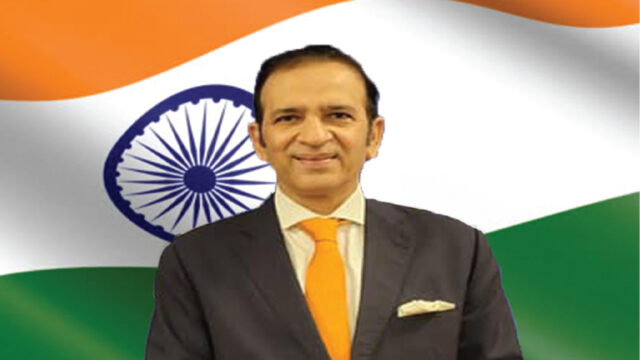Q1. Excellency can you give us a broad overview of India-Canada relationship?
Ans. India-Canada relations are multifaceted and growing stronger by the day. As large democracies and major G-20 countries we have much to collaborate on, particularly as the world grapples with a devastating pandemic. India and Canada are consulting not only on the health and medical aspects of dealing with the pandemic but also on the subsequent economic recovery and in building a post-COVID mechanism that safeguards us against such future shocks.
Our people-to-people relations are unique with 1.6 million Canadians of Indian heritage and almost 700,000 Indians living in Canada, including more than 230,000 students in Canadian universities and colleges. The Indian community in Canada has contributed to the diversity and resilience of Canada. Itis completely integrated into Canadian life and is playing strong leadership roles in all sectors from public life to science to arts. The community has provided four Cabinet ministers in the current government, in all 22 MPs in the Parliament. This gives a very strong base for growth of India Canada relations.
We have in place the entire spectrum of collaborative mechanisms on areas ranging from counter terrorism to promotion of science and technology to arctic research to cultural exchanges.
India Canada bilateral trade has now grown to more than USD 10 billion. Canada is an important source of primary produce to India, including uranium, potash and bituminous coal. India exports pharmaceuticals, steel and IT services to Canada. Canadian funds have invested more than USD 60 billion in a wide range of sectors in India. Major Indian companies like TATA, Mahindra, Birla, and Infosys have a strong and growing presence in Canada. We see bilateral commercial relations growing, as Canadian companies develop a greater appreciation of the importance of India, in diversifying risks and building robust international supply chains.
Q2. As climate change has been playing a huge role in the relationship between countries, how are India and Canada joining hands in order to combat climate issues?
Ans. At the Climate Summit hosted by President Biden on Earth Day, Prime Minister Modi pointed out that India’s per capita carbon footprint has remained at 60 per cent of the global average. He welcomed partners to create templates for sustainable development in India.
In 2015, at the Paris COP 21 Summit, India and Canada, along with the United States, played a crucial role in forging the consensus to deliver one of the most significant international agreements for humanity. Six years down the road, India not only achieved but also exceeded most of the Paris targets. According to the Climate Transparency Report 2020, India was the only G-20 nation that would meet its climate commitments. India has reduced its emission intensity by 21% and will achieve the targeted emission intensity of GDP by 33-35% by 2030. With the massive addition of renewable energy capacity, India is just 2%short of its 2030 target of 40% installed non fossil fuel electric capacity. Canada, along with India, is one of the major countries that recognizes the realities of climate change for immediate domestic and international action. India is leading efforts to energize global climate action with the Kigali Amendment to the Montreal Protocol and Leadership Group for Industry Transition. It has recently created an Apex Committee for Implementation of the Paris Agreement (AIPA) to increase coordination among 14 key ministries and engage business, stakeholders, and the U.N. on delivering the Paris Agreement. The International Solar Alliance (ISA), launched in 2015, is Prime Minister Modi’s vision to bring clean and affordable energy within reach of all and enhance international collaboration with countries having solar potential. So far, 90 countries have signed the Framework Agreement of ISA, with 73 of them ratifying it. India has also announced the launch of the Coalition for Disaster Resilient Infrastructure (CDRI) to help the less developed economies enhance their capacities to build climate change and disaster-resilient economies and infrastructure. India has been delighted to welcome Canada as the newest member of the CDRI. We hope Canada will join the ISA as well.
To read the entire interview, please subscribe to Diplomacy and Beyond Plus









